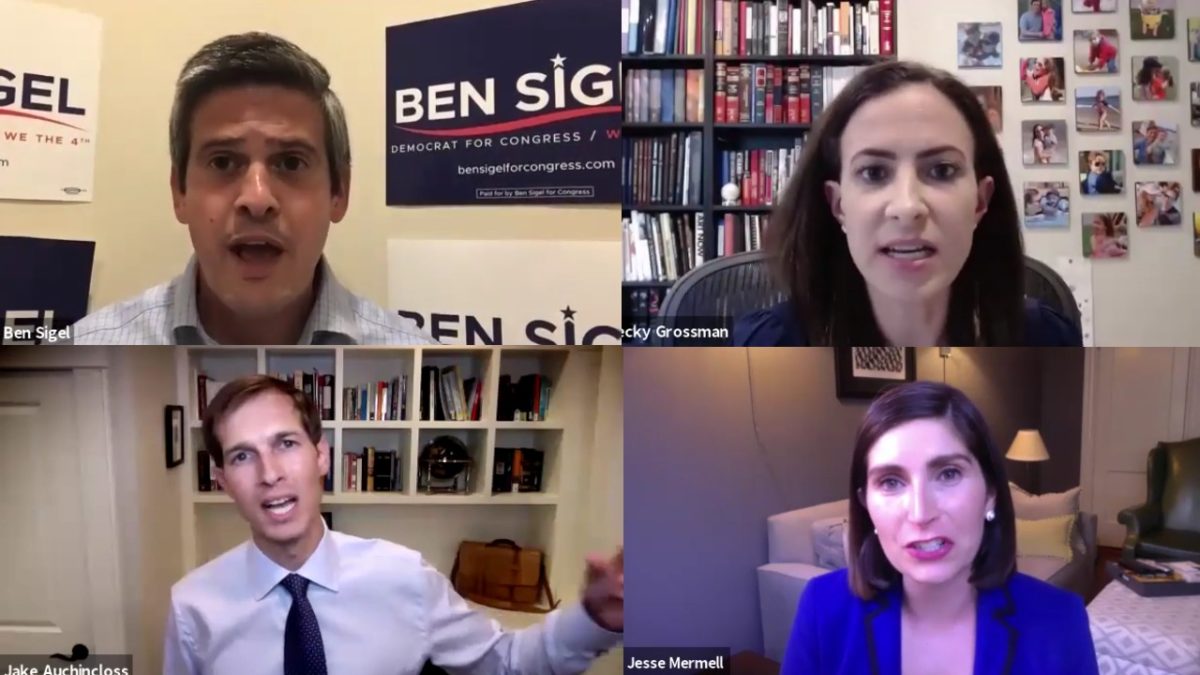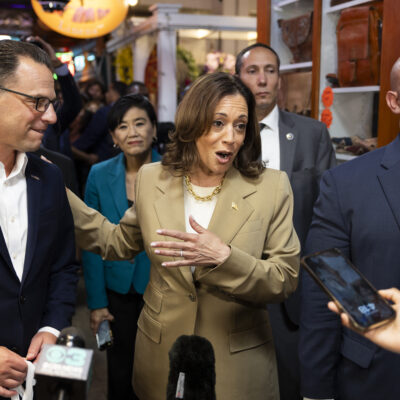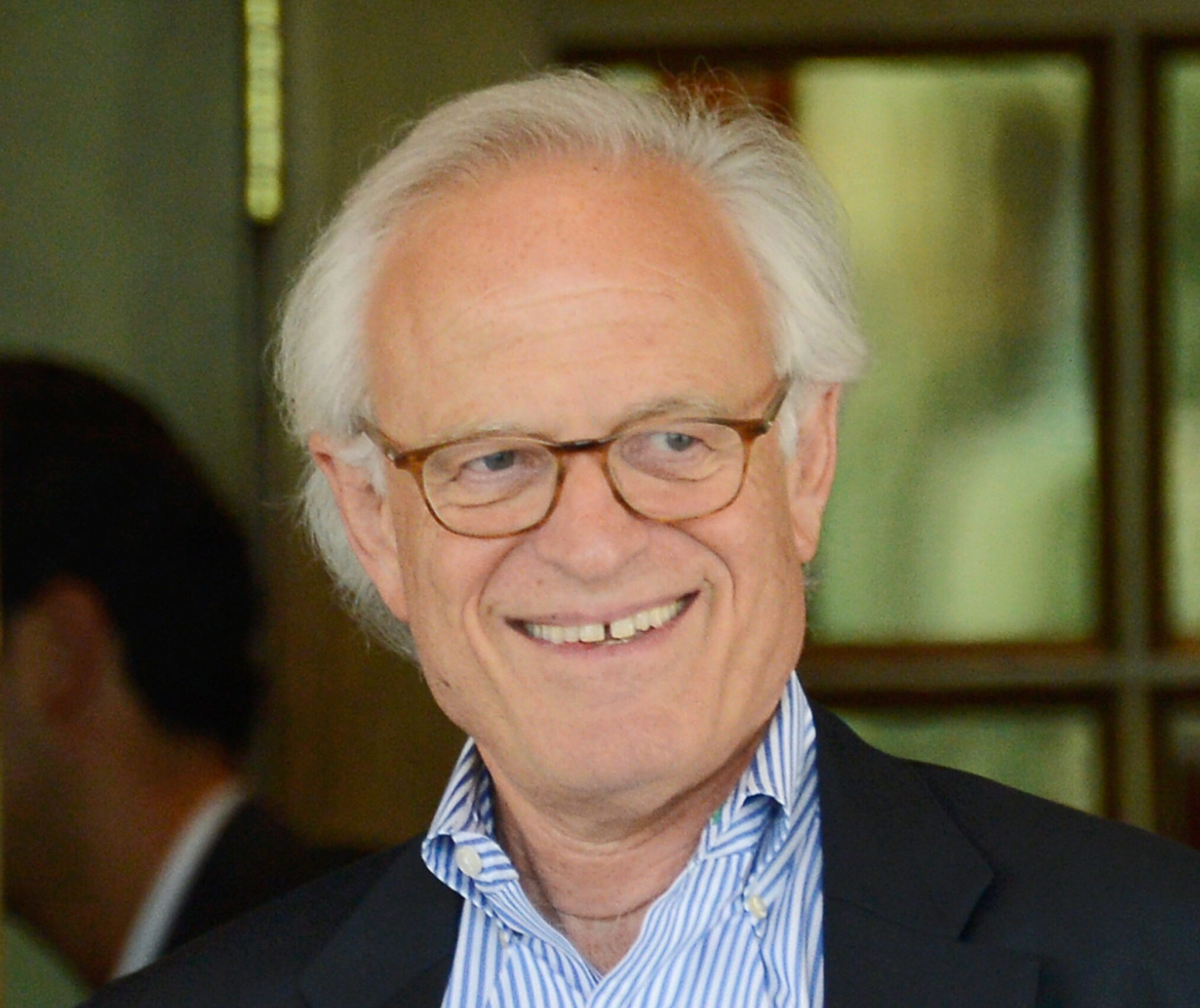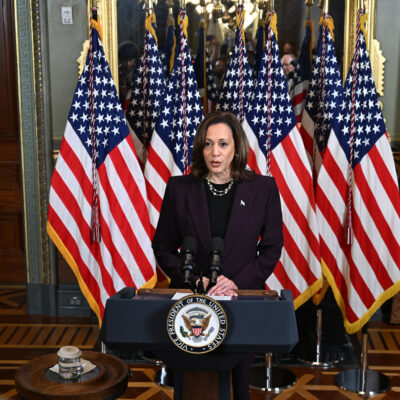Massachusetts Dems say Israel a factor in their voting, new poll shows
More than half of voters in two districts said a candidate's position on Israel greatly or somewhat impacts their vote

Screenshots
Democratic candidates for Massachusetts's 4th congressional district, clockwise from top left: Ben Sigel, Becky Grossman, Jesse Mermell and Jake Auchincloss.
A majority of Democratic voters in a pair of competitive congressional districts in Massachusetts say a candidate’s support for Israel is a factor in their voting decision, according to two new polls conducted by Jewish Insider and bipartisan polling firm RABA Research.
The polls, which received a combined 1,015 responses from likely primary voters in Massachusetts’s 1st and 4th districts, were conducted via landline and cell phones last week. Of those polled, 56% of voters in the 1st district and 55% of voters in the 4th district said a candidate’s support for Israel greatly or somewhat impacts their vote on Election Day. In the 1st district, 44% said support for Israel matters a little or not at all, while in the 4th district that number is at 45%. The polls have a margin of error of ±4.4.%.
“This is significant, since poll respondents often resist admitting that their vote can be swayed by a single issue, particularly in the realm of foreign policy,” said John Del Cecato of RABA Research.
Both races on Tuesday are expected to be fairly close, and Israel has come up as a dominant issue in the weeks ahead of the September 1 primary.
In the 1st district, Holyoke Mayor Alex Morse, a 31-year-old progressive candidate backed by Justice Democrats, Rep. Alexandria Ocasio-Cortez (D-NY) and IfNotNow, is challenging longtime incumbent Rep. Richard Neal (D-MA).
Morse, who is Jewish, supports conditioning aid to Israel to pressure the Israeli government to change its policies towards the Palestinians. The progressive candidate is opposed to legislation against the Boycott, Divestment and Sanctions movement, though he said he’s personally not in favor of BDS.
Neal is backed by pro-Israel groups Democratic Majority for Israel and Pro-Israel America. Last week, DMFI poured more than $100,000 into anti-Morse advertising. “[Neal] has consistently supported a strong U.S.-Israel relationship. Mayor Morse does not,” DMFI’s CEO Mark Mellman told JI.
In the 4th district, seven Democrats are vying to succeed Rep. Joe Kennedy (D-MA), who announced last year he was mounting a primary challenge to Sen. Ed Markey (D-MA). The candidates have all spoken about their stances on Israel in recent interviews and in questionnaires. One of the candidates, Ihssane Leckey, took a hard line on Israel in two candidate surveys for progressive organizations, but later appeared to qualify some of her positions on BDS and visiting the Jewish state. During a virtual Jewish outreach event earlier this month, Leckey said she “will not be pigeonholed into that box of ‘yes’ or ‘no,’” on the issue of the Boycott, Divestment and Sanctions movement, and expressed objections to the BDS question on the DSA survey.
The district, which includes the Boston suburbs of Brookline, Newton and Brighton, contains New England’s largest Jewish population. In a recent interview with JI, Kennedy said he felt the district would be left in good hands when it comes to the U.S.-Israel relationship.
The JI polls show that among “somewhat liberal” and “very liberal” voters, more than 50% see Israel as important/somewhat of an issue.
Brandeis University professor Jonathan Sarna, who lives in the 4th district, said he was “pleased to see” that a majority of voters consider Israel important. “We have been hearing from a lot of sociologists and others who study that Israel doesn’t matter to young Jews, that it’s not nearly as important,” Sarna told JI. “This poll serves as a reminder that Israel is important to a wide range of voters.”
While voters see support for Israel as important to their vote, they differ on whether or not military assistance to Israel should be leveraged to influence Israeli policies.
In the Neal-Morse race, a plurality of voters — 48% — think aid to Israel should be conditioned upon Israel making changes to their policies towards Palestinians, while 34% want military assistance to continue without conditions. Eighteen percent — including 29% of voters who identified as “very liberal” — were not sure or expressed no opinion.
In Kennedy’s House district, 53% of those surveyed are in favor of conditioning aid to Israel, while 32% are opposed. Some 15% were unsure. Among voters who identify as “very liberal,” 63% are in favor of conditioning aid.
Sarna noted that he’s “hesitant to read too much” into the findings because most people are not familiar with the nuances of aid to Israel. “It’s not surprising that a majority would say, well we should only help them if they listen to us, nobody gets unconditional,” he explained.









